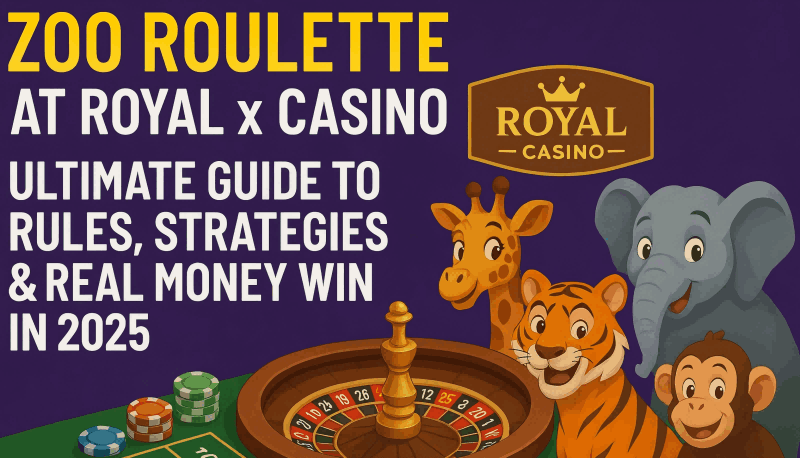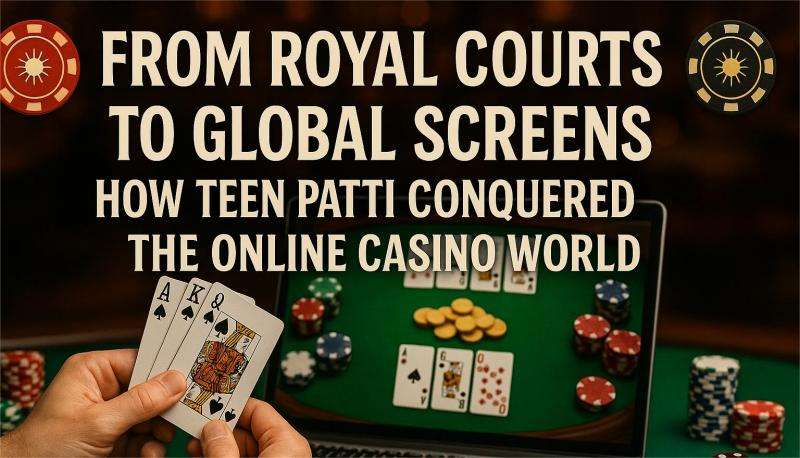Royal x Casino Crash Game Tips How to Accurately Predict the Crash Point
Feb 24, 2025
Crash games have become a popular choice among online gambling enthusiasts due to their fast-paced and straightforward gameplay. Royal x Casino's Crash game, in particular, has gained significant attention for its high payout potential and unique mechanics. However, many players often struggle to cash out at the right moment, leading to losses when the game "crashes." While the core mechanics of Crash games are based on random algorithms, players can still improve their chances of winning by adopting rational strategies and effective risk management. This blog will delve into the underlying logic of Crash games and share practical tips to help you make better decisions during gameplay.

Understanding the Core Mechanics of Crash Games
The rules of Crash games are simple: players place bets before each round starts, and once the game begins, a multiplier starts increasing from 1x. Players must manually click "Cash Out" before the game crashes to lock in their profits. If the game crashes before a player cashes out, they lose their bet for that round.
However, behind this seemingly simple mechanic lies a complex mathematical design:
- Random Algorithm: The crash point is determined by a pseudo-random number generator (PRNG) or hash algorithm, ensuring unpredictability and fairness.
- House Edge: The expected value of the crash point is typically designed to be slightly lower than the game's return-to-player (RTP) rate. For example, if the RTP is 97%, players can expect to lose 3forevery3forevery100 wagered in the long run.
- Dynamic Risk: The higher the multiplier, the exponentially greater the risk of a crash. For instance, the crash probability might be 10% at 1.5x but could exceed 60% at 5x.
Common Misconceptions
In the pursuit of "accurately predicting" the crash point, players often fall into the following traps:
- Overreliance on Historical Data: Believing that past crash points (e.g., a series of low multipliers) will influence future outcomes. In reality, each round is independent, and the algorithm does not adjust probabilities based on past results.
- Overconfidence in Intuition: Many players hesitate to cash out when the multiplier reaches their target (e.g., 3x), hoping for a higher payout, only to miss the optimal exit point.
- Chasing Losses: Doubling down after consecutive losses in an attempt to recover previous losses, which often accelerates the depletion of their bankroll.
Practical Strategies: From Probability to Behavior Management
While it's impossible to predict the exact crash point, the following strategies can help players optimize their decision-making:
1. Bankroll Management and Risk Control
- Fixed Percentage Betting: Limit each bet to 2%-5% of your total bankroll. For example, with a 1,000bankroll,keepindividualbetsbetween1,000bankroll,keepindividualbetsbetween20 and $50.
- Staggered Cash-Out Strategy: Divide your bankroll into multiple portions and cash out at different multipliers. For example:Cash out 50% of your bet at 2x (low risk, capital preservation)Cash out 30% at 5x (moderate risk)Aim for 10x or higher with the remaining 20% (high risk, high reward)
2. Observing "Cool-Down" Patterns
While each round is independent, some platforms may adjust their algorithms to control extreme fluctuations. If there are five or more consecutive low-multiplier crashes (e.g., <1.5x), consider slightly increasing your risk tolerance in subsequent rounds, but set strict loss limits.
3. Using Probability Models
Suppose a Crash game's crash probability formula is:
P(x)=1−11+0.05xP(x)=1−1+0.05x1
Where x is the current multiplier. Then:
- At 2x, the crash probability is approximately 9.1%
- At 5x, the crash probability is approximately 20%
- At 10x, the crash probability is approximately 33.3%Based on this model, players can calculate the expected return:E(x)=(1−P(x))×x−1E(x)=(1−P(x))×x−1If E(x) is negative, long-term play at that multiplier will result in losses.
Advanced Techniques: Psychological Play and Behavioral Insights
1. Overcoming the "Sunk Cost Fallacy"
When the multiplier reaches a high range (e.g., 8x), players often refuse to cash out because they feel they've "waited too long." To avoid this, set clear goals in advance. For example:
- If your target is 5x, consider cashing out at 4.8x to avoid the risk of losing everything due to greed.
2. Leveraging "Crowd Behavior" Signals
On platforms that display real-time player activity, observe where most players cash out (e.g., 2x or 3x). These points may reflect the crowd's psychological "safe zones," but they could also be targeted by the platform's algorithm.
3. Time Window Strategy
Analyze crash point distributions during different time periods (e.g., peak hours vs. off-peak hours). Some platforms may reduce risk during high-traffic periods to attract players and increase crash probabilities during low-traffic periods to balance profits.
The Limits and Risks of Technical Assistance
Some players attempt to predict crash points by analyzing network latency, graphical rendering speeds, or using third-party tools. However, these methods come with significant risks:
- Violation of Platform Rules: Using unauthorized scripts can lead to account bans.
- Technical Unreliability: Modern Crash games use server-side calculations, making it impossible for clients to access meaningful data.
- Overreliance Trap: Even if a prediction succeeds once, it may be due to random chance, and long-term use can still result in losses.
The Ultimate Advice for Rational Play
- Set Profit Targets and Loss Limits: For example, cash out 50% of your winnings after doubling your bankroll, and stop playing if losses reach 30%.
- Keep a Game Log: Analyze your decision-making patterns to avoid repeating mistakes.
- Accept the Nature of Randomness: Crash games are ultimately entertainment products, not investment tools. Treat your bankroll as "entertainment expenses" rather than a means to make money.
In Royal x Casino's Crash game, the real "skill" lies not in predicting the crash point but in using mathematical thinking, risk management, and psychological discipline to make optimal decisions within the framework of randomness. Remember, the ultimate goal of any strategy is not to beat the algorithm but to enjoy the game while maintaining a sustainable and enjoyable experience. Play responsibly, and you'll find long-term success.











